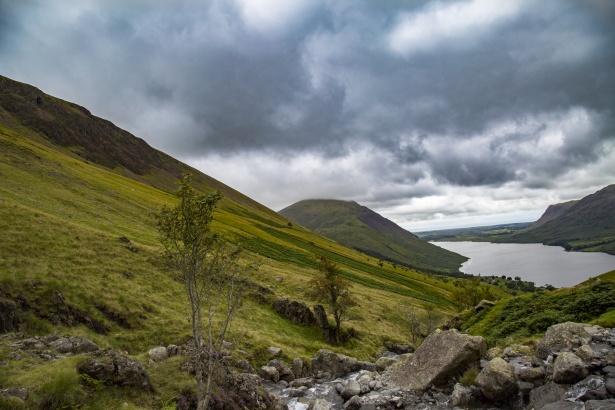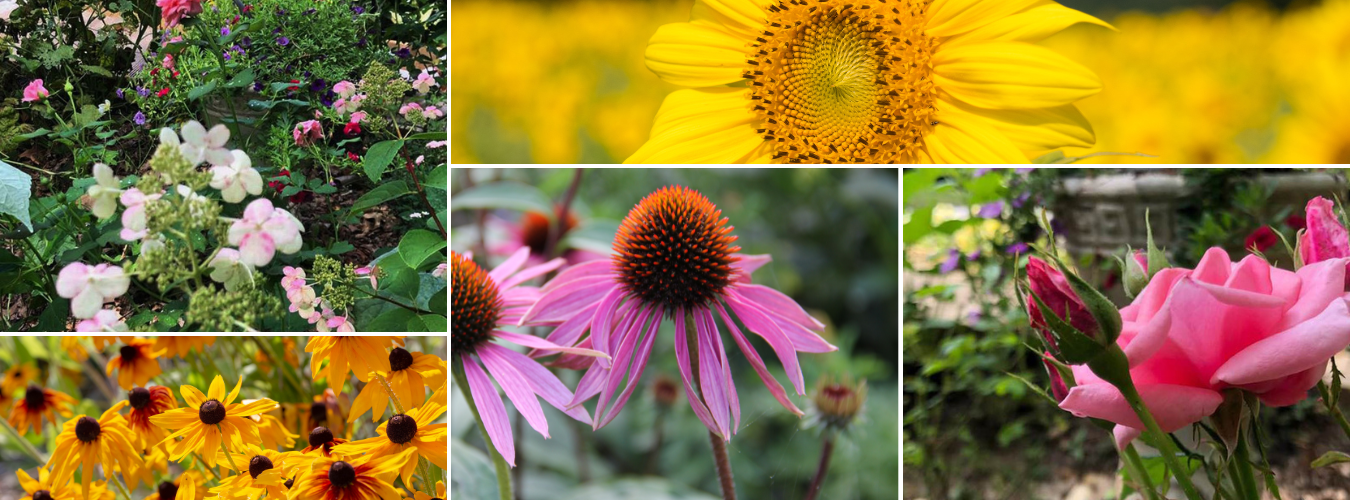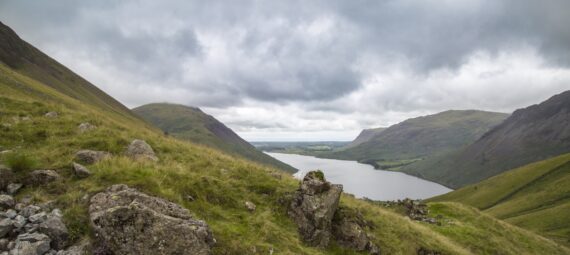While she was alive, Dorothy Wordsworth was the uncelebrated sister of the famous Romantic poet William Wordsworth. Now, a couple of centuries later, Dorothy Wordsworth is lauded as one of the greatest nature diarists of all time. Dorothy was born in 1771 and she died in 1855, and during much of her life, she lived with her brother in the Lake District of England, where their frequent companions were other writers, especially Samuel Taylor Coleridge.
Dorothy Wordsworth was an avid walker, and as she walked, she collected notes about what she saw in her journals. Although she did not illustrate her journals, per se, her words offer a vivid word painting of the natural world around herself. During most of her life, Dorothy and William lived in the Lake District of England.

The above photo is Scafell Pike, which is the highest summit in England. Dorothy Wordsworth and her friend climbed Scafell Pike, and she wrote about what she discovered along the way.

Dorothy’s brother William had Dorothy’s writing published, and he claimed her words as his. For many years, this error was not corrected. To make matters worse, those writings were long considered to be one of the first examples of recreation writing. Many years later, we understand that this early example of recreation writing was the first ever to have been written by a lady. Following is that account:
Lake Scenery
The morning was clear and cheerful after a night of sharp frost. At ten o’clock we took our way on foot towards Pooley Bridge on the same side of the lake we had coasted in a boat the day before.—Looked backwards to the south from our favourite station above Blowick. The dazzling sunbeams striking upon the church and village, while the earth was steaming with exhalations not traceable in other quarters, rendered their forms even more indistinct than the partial and flitting veil of unillumined vapour had done two days before. The grass on which we trod, and the trees in every thicket, were dripping with melted hoar-frost. We observed the lemon-coloured leaves of the birches, as the breeze turned them to the sun, sparkle, or rather flash, like diamonds, and the leafless purple twigs were tipped with globes of shining crystal.
The day continued delightful, and unclouded to the end. I will not describe the country which we slowly travelled through nor relate our adventures; and will only add, that[Pg 49] on the afternoon of the thirteenth we returned along the banks of Ulswater by the usual road. The lake lay in deep repose after the agitations of a wet and stormy morning. The trees in Gowbarrow park were in that state when what is gained by the exposure of their bark and branches compensates, almost, for the loss of foliage, exhibiting the variety which characterises the point of time between autumn and winter. The hawthorns were leafless; their round heads covered with rich scarlet berries, and adorned with arches of green brambles, and eglantines hung with glossy hips; and the grey trunks of some of the ancient oak, which in the summer season might have been regarded only for their venerable majesty, now attracted notice by a pretty embellishment of green mosses and fern intermixed with russet leaves retained by those slender outstarting twigs which the veteran tree would not have tolerated in his strength.
The smooth silver branches of the ashes were bare; most of the alders as green as the Devonshire cottage-myrtle that weathers the snows of Christmas.—Will you accept it as some apology for my having dwelt so long on the woodland ornaments of these scenes—that artists speak of the trees on the banks of Ulswater, and especially along the bays of[Pg 50] Stybarrow crags, as having a peculiar character of picturesque intricacy in their stems and branches, which their rocky stations and the mountain winds have combined to give them?
At the end of Gowbarrow park a large herd of deer were either moving slowly or standing still among the fern.
I was sorry when a chance-companion, who had joined us by the way, startled them with a whistle, disturbing an image of grave simplicity and thoughtful enjoyment; for I could have fancied that those natives of this wild and beautiful region were partaking with us a sensation of the solemnity of the closing day. The sun had been set some time; and we could perceive that the light was fading away from the coves of Helvellyn, but the lake under a luminous sky, was more brilliant than before. After tea at Patterdale, set out again:—a fine evening; the seven stars close to the mountain-top; all the stars seemed brighter than usual. The steeps were reflected in Brotherswater, and, above the lake appeared like enormous black perpendicular walls. The Kirkstone torrents had been swoln by the rain, and now filled the mountain pass with their roaring, which added greatly to the solemnity of our walk. Behind us, when we had climbed to a great height, we saw one light very distant in the vale, like a large red[Pg 51] star—a solitary one in the gloomy region. The cheerfulness of the scene was in the sky above us. Reached home a little before midnight.
William Wordsworth.
The following video tells a bit more of that Scafell Pike story, and it offers a glimpse of some of what Dorothy Wordsworth might have seen and experienced as she made that climb. Among other things, Dorothy Wordsworth had an intimate connection to nature, and the following video captures a bit of the rawness of that connection.

